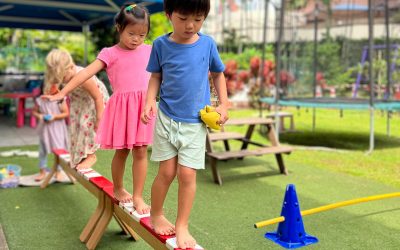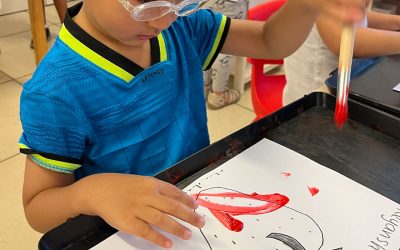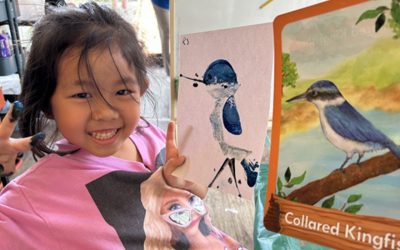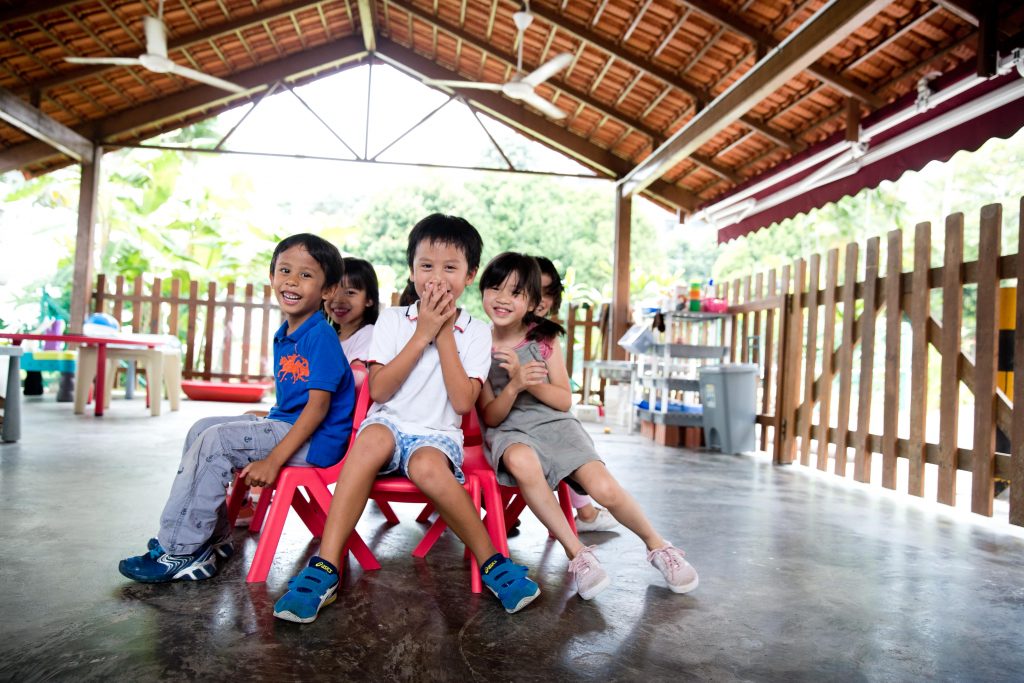
Introduction
We often think of preschool as a magical and idyllic place but this may not always be the case. School bullying, usually associated with older school going children and teenagers, can happen in kindergartens too!
Thankfully, there are ways for parents and educators to work together to prevent and stop kindergarten bullying from happening. By doing so, we can minimise targeted, persistent meanness in preschools, and work together to nurture self-assured and kind children.
What is Kindergarten Bullying?
“Kids will be kids” may be a common refrain among well-meaning adults. But do you know that patterns of unkind bullying behaviour can begin as early as the ages of three to four years old in kindergarten children?
Bullying is defined as “an aggressive act with the intention to hurt a person on purpose, in any form—physical, verbal, relational and cyber. There is an imbalance of power where the victim finds it difficult to defend oneself in which such acts happen repeatedly or frequently (Smith, 2014). According to the Singapore Children’s Society Bully-Free Programme, the three features of bullying are: power imbalance in a relationship, intention to harm, and repetition of this behaviour.
Young children may resort to physical or verbal aggression (hitting, name calling, threats) during their early years when they are still developing their thinking, social, and communication skills. They may also engage in relational aggression—or covert bullying—by socially isolating or excluding another child from a group or activity.
Note that such bullying behaviour may be visible/noticed by others, or done in secret. It may also involve other children who mimic the negative behaviour to gain acceptance without fully grasping the consequences of their actions.
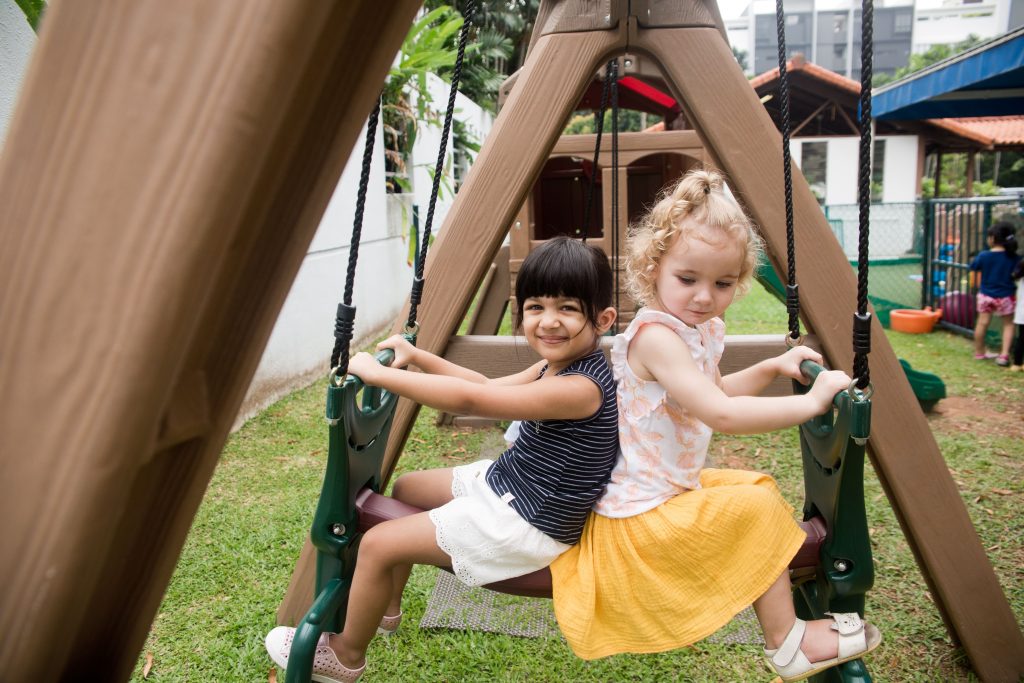
Why Does Kindergarten Bullying Occur?
Within a kindergarten setting, children are constantly engaging in social interactions that are required for learning, playing, and other cooperative activities. Note that some actions (like snatching away a toy) or supposedly rude remarks (“go away!”) which could be regarded as bullying behaviour are actually appropriate for a preschooler’s young age range, given their limited (but nevertheless expanding) social, communication, and cognitive skills.
In this context, children who are too immature to express themselves in situations or surroundings outside the home may exhibit aggression as a means of communication to achieve their goals. Play-related conflicts are pretty normal in kindergarten—it gives children the learning opportunity to problem solve, work together, and forgive one another, while building resilience and character.
Young children also have a natural tendency to get physical and vocal during playtime. What is perceived as bullying could actually be rough-and-tumble activity that incites rowdy excitement within the group. It’s quite normal for kindergarteners to simply dust themselves off, dismiss verbal outbursts, and play with one another happily again when this happens.
The Role of Playground Politics in Kindergarten Bullying
Ever heard of the term “playground politics”? It describes the power struggle that occurs amongst children as they assert themselves to see who is stronger, faster, and more popular in school.
Young children at the kindergarten age are still developing their thinking, social, and communication skills. Hence, it is understandable that they need time to be able to take others’ perspectives and to relate to others with deeper degrees of empathy.
Preschoolers are busy figuring out how to regulate their emotions and how relationships work—often they do so by testing the boundaries of acceptable behaviour as they fine tune their sense of impulse control.
Playground politics in kindergarten only becomes a red flag when a child persistently and intentionally inflicts unwanted or aggressive behaviour on another child. This is when bullying occurs—but why?
Usually, the perpetrator associates such behaviour to be an effective means of achieving personal goal(s) and to intimidate or exert dominance over the other child. If left unchecked, bullying increases in frequency and intensity and runs the risk of becoming learned behaviour in a young child.
It is worth noting that even if a targeted child does not identify themselves as a victim and generally seems unaffected, the issue should still be a cause for concern. To address this and to understand the impact on those involved, the Bully-Free Programme advocates a safe and supportive culture in schools with a zero tolerance stand towards bullying.
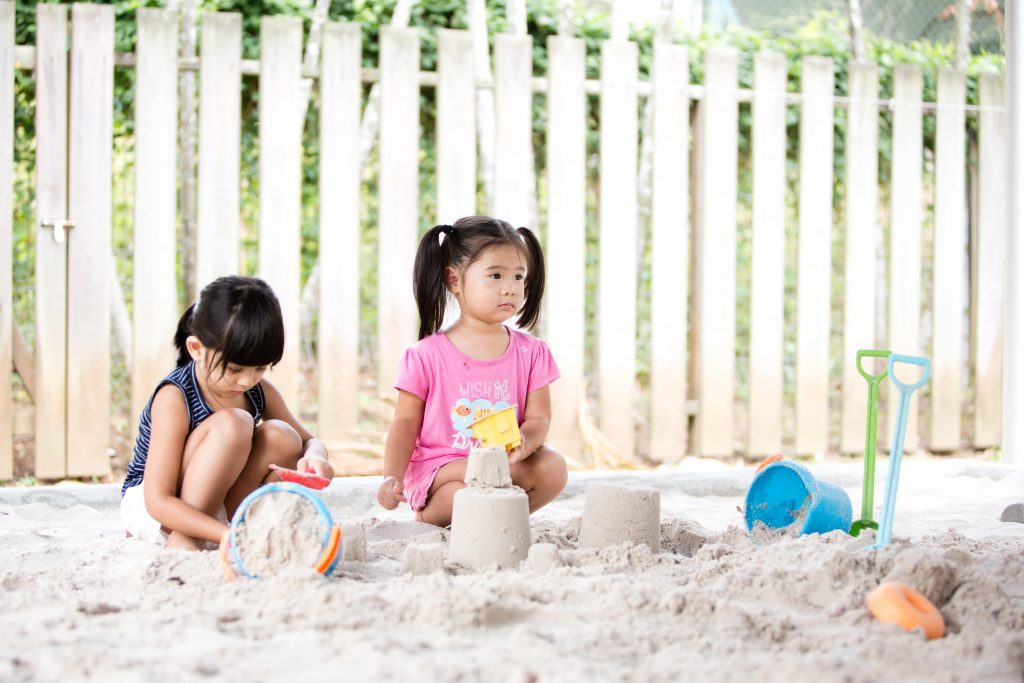
How to Tell if Your Child is Being Bullied?
Do you suspect that your child could possibly be bullied at school? How can you tell if this is so?
If you are concerned that your child is a target of kindergarten bullying, it is important to address it because patterns of behaviour may follow them for life.
Here are some signs to look out for in a bullied child:
- Displays a sudden reluctance to go to school
- Claims to always feel unwell with fake illnesses
- Has separation anxiety
- Speaks of being lonely/not having friends
- Becomes withdrawn or has mood swings and behavioural changes (loss of appetite, seems sad, has difficulty sleeping, more frequent tantrums or outbursts)
- Voices concern about the aggressor(s) at school
- Has unexplained bruises or missing personal belongings after a school day
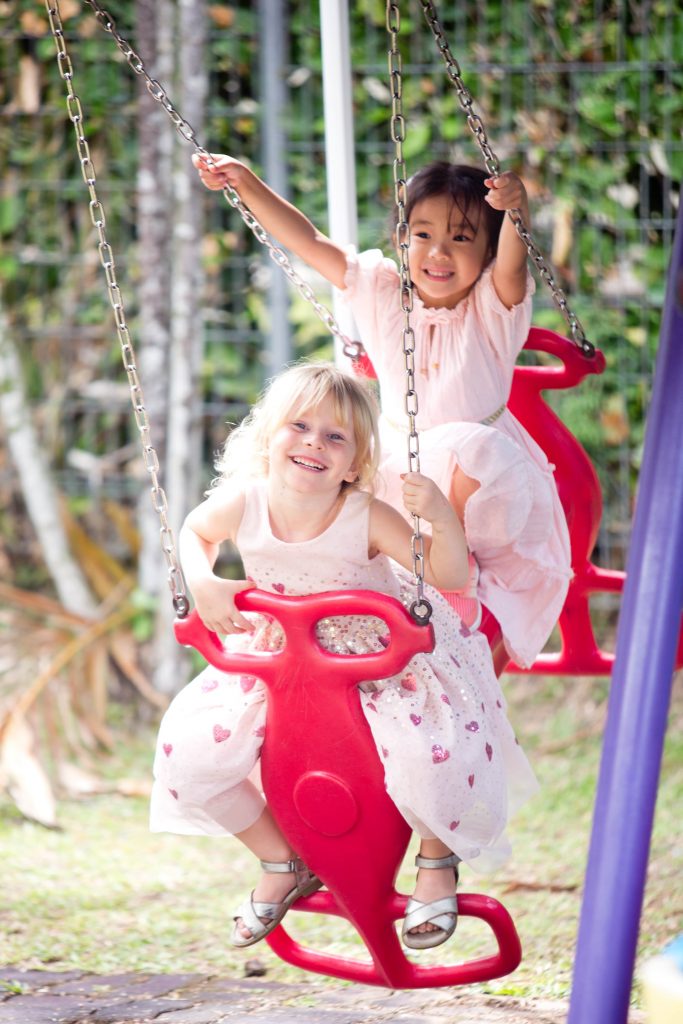
Manage Bullying by Fostering Friendships in Kindergarten
Now that we are more aware, how can we be part of the solution to kindergarten bullying?
According to the National Association for the Education of Young Children, an effective bullying prevention measure is to build up your child’s social skills. These include forming friendships, which are essential during childhood. Experts highlight that fostering friendships at a young age creates developmental opportunities that lead to higher functioning at school and in life.
Even amongst young children, connecting with others makes them feel good, bolstering their self confidence and sense of identity. This doesn’t make them egocentric or selfish; rather, learning to get along with other children helps improve their communication and emotional skills such as kindness and empathy.
Here’s how you can encourage your kindergarten-aged child to foster friendships:
- Play! Participate in extracurricular activities and social situations such as playdates. Parents can also engage with their children as they play, encouraging them to interact actively while regulating their emotions.
- Listen, Learn and “Do Life” Together! Parents and educators should be mindful role models who exhibit positive social behaviours for children to emulate by showing kindness and compassion.
- Collaborate not Compete! Engage in cooperative—and not competitive—games where they learn to lose graciously while following rules and taking turns.
It is also important for our homes and schools to be safe places for our children! Researchers have found that children who feel insecure or stressed tend to form negative neural connections which determine flight-or-fight instincts and responses. In contrast, a setting that allows children to assert themselves, collaborate with others, and have concerted conversations about relationships, will nurture confident and empathetic individuals.
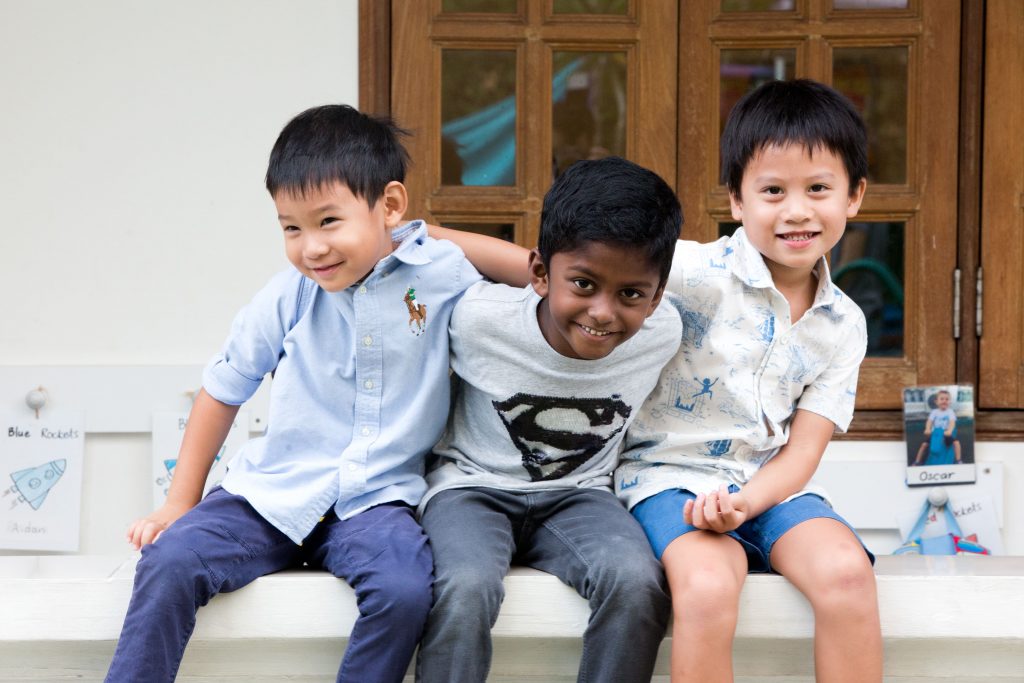
A Kindergarten That’s “Kinder”…
Before the more rigid routines of formal schooling, a kindergarten is an excellent environment for a child to make friends and adapt to the emerging social expectations required of them. Heartfield Kindergarten recognises the importance of this—this is why we place great emphasis on imparting to your child the essential skills needed to navigate an increasingly complex world.
Heartfield’s unique philosophy is to embrace every child for who they are, equip them with the right social and behavioural skills, and empower them to forge strong interpersonal relationships. By doing so, they can better handle challenges and contribute to the community through responsible and thoughtful actions and decisions.
While Heartfield endeavours to promote child-led learning, our educators play a vital role in guiding your precious little ones. Our desire is that our children will develop an intrinsic concern for others and desire to be a good friend. Instead of authoritarian punishment or labelling any child as a “bully” or “victim”, we regard everyone as being on a journey of self discovery. After all, children are still highly impressionable and actively exploring what works and doesn’t at this stage of life.
Every experience is an opportunity to learn, flourish, and become better—and Heartfield is an active advocate for turning even “negative” situations into positive ones. We practise all-inclusivity, where compassion and acceptance are instilled as important values in each and every child.
Our communication and collaboration channels with parents further ensure strong levels of support for challenges that may arise in raising young children. Together, parents and educators can be the most effective allies in countering bullying in its established and perceived forms! Heartfield hopes to team up with you in welcoming your child to our family where a safe sanctuary awaits to awaken their love for self and others. Do get in touch with us at tel: +65 6835 2354, email: info@HeartfieldKindergarten.com or visit our contact page for details.
